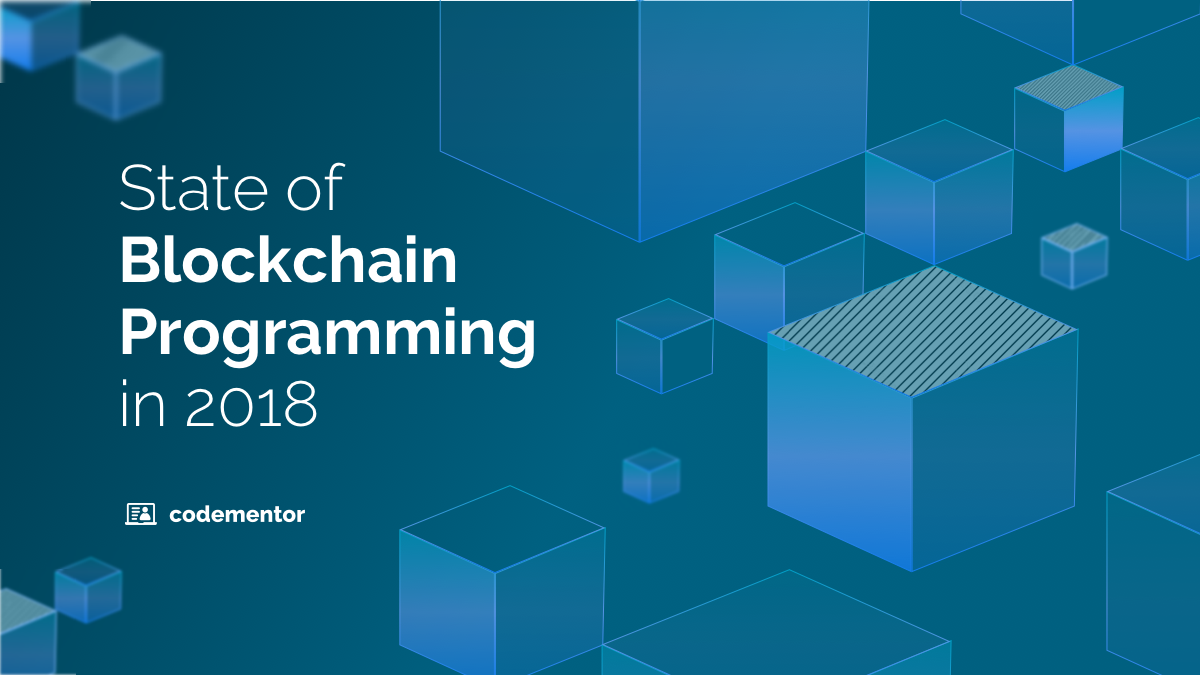Most developers have attended at least a few tech events or virtual conferences. Some of you may have sat in your seats and thought to yourself “I have the expertise to talk about this as well.” With the rise of virtual events, you can share your knowledge and experience more easily with more developers.
Of course, not all virtual event platforms are created equal for developer events—before deciding where to host your virtual events, make sure the platform has your target audience. For instance, Codementor Events has a vibrant developer community with 100K+ developers. If you’re looking for virtual events platform with developer audiences, this could be a great fit for you. You can do some research on which virtual events platforms are more suitable for your virtual event ideas.
Before we dive into the details of planning your virtual event, let’s start by talking about why you may want to speak at virtual events. We’ll then walk through deciding on the right topic for the right audience and how you can make your event title and descriptions relatable and attention-grabbing.
Why should I speak at developer virtual events?
Similar to writing blog posts or contributing to open source, speaking at online events is a way for you to share knowledge. Not only are developer virtual events great for knowledge sharing, they’re also great for community building and personal growth.
Own and reinforce your knowledge
Regardless of seniority and years of experience, every developer has something unique to offer. Whether it’s how you found a job after finishing a coding bootcamp or how your team uses microservices for back- and front-end, you’ll have unique perspectives, knowledge, and tips to share. The best way for you to validate what you know is to teach it to someone else. Preparing and speaking at virtual events give you the opportunity to articulate and solidify your knowledge.
Practice sharing your experience and knowledge with others
Some dev teams have regular sharings, where every developer is encouraged to share something new they’ve learned. However, not every developer has built-in communities to do so. The process of prepping, speaking, and getting feedback at your own virtual events gives you the opportunity to refine your knowledge and practice sharing concisely and effectively.
Help others learn from your experience via virtual events
No matter where you are in your programming journey, there are developers who are either in the same place as you or want to be where you are. Sharing what you know about technical tools, libraries, languages, and best practices can help other developers ramp up their technical skills exponentially. Sharing your career progression, blockers, and resources can help others grow in their careers and remove feelings of anxiety and uncertainty. Regardless of the nature of your virtual event topic, as long as you know who can benefit from your online event, there are no irrelevant experiences.
Build your personal brand and network
If you’re interested in broadening your network and building a more prominent online presence, hosting virtual events on reputable platforms can go a long way. You’re likely to gain a dozen or more LinkedIn, Twitter, and GitHub connections with other like-minded developers who have resources to share, common interests, or want to learn from you.
Developer virtual events are one of the most accessible ways for developers to connect, learn, and share knowledge and experience. To maximize the benefits of virtual events for both you and your virtual attendees, identifying the right audience, topic, event title, and event descriptions is crucial. We’ll address each of these aspects in the following sections.
How do I choose the right topic for my virtual events?
While all experiences are valuable, your experience may speak to some more than others. As such, it’s important to identify the kinds of developer you think would benefit from your virtual events sharing the most. By narrowing down on your target audience, virtual event ideas, and cadence, you’ll be able to share your knowledge with the right group of developers.
To help you narrow in on developers who will learn from your talk, here are some ways you can think about different groups of developers:
-
Career stage: aspiring, junior, mid-level, senior developers, tech leads, etc.
-
Types of developer: front-end, back-end, full stack, DevOps, Android, iOS, etc.
-
Industries & products: B2B, B2C, fintech, e-commerce, healthcare, etc.
Let’s say you want to take the technical route and share about Node.js at virtual events. Front-end, back-end, and full stack developers could all benefit from this topic. With that said, it could be too ambitious and ineffective to try to capture front-end, back-end, and full stack developers’ pain points in one talk. As an example, let’s choose back-end developers as the focus for this topic. Here are some potential event topics that are focused:
- 7 Steps to learn Node.js as a beginner
- Live coding: Build a chat app using Node.js
- Scaling enterprise software with Node.js
The first topic could be helpful for aspiring and junior developers. The second and third topics could apply to junior, mid-level, or senior developers based on how you frame your talk. If you have more than one idea you'd like to share, try framing them into a series of talks rather than cramming it all into one. In the next section, we’ll talk about the steps to writing a clear and informative event title for event planning.
What does a good event title look like?
Depending on the nature of your topic, the title of your virtual events could vary widely. For instance, if you want to host a technical talk, your virtual event title should include the key technologies, concepts, or tech stacks you’ll share about. On the other hand, if you’re planning a more career-related talk, your title should address the issues, pain points, or challenges you’ll speak to.
We’ll use a career-focused topic to illustrate how you might go from a general topic to a specific title for your talk. Let’s say you’re a tech lead and want to share insights on how to be a good tech lead. With “tech lead” as the central theme, here are a few virtual events titles that captures different facets of being a tech lead:
- Effectively managing a 15+ people developer team
- How to interview and find the right developers for your team
- Personal time management for tech leads
While all three topics are relevant to tech leads and aspiring tech leads, focusing your talk on one specific topic will allow you to dig deeper into each pain point and deliver precise advice to your audience at virtual events.
Regardless of the topic you choose, here are some tips on coming up with a relevant and eye-catching virtual event title when you're doing event planning:
-
Clearly state the tech stacks (for technical events)
-
Highlight the problems you'll provide solutions for
-
Provide the concepts, tools, or solutions you’ll be sharing
-
Concisely summarize what the audience can expect
-
Google for title inspirations
Now that you’ve caught the attention of your audiences’ eyes with the right event title, the next thing is to write a compelling event description to encourage attendees to join your virtual event.
How to write an event description for developer virtual events
Not many virtual event platforms provide structures for writing event descriptions. We've created the following structure to help you attract attendees effectively. To make your event description more scannable and enticing to potential event attendees, here’s the structure we suggest:
About the talk:
The purpose of this section is to connect with potential virtual attendees by highlighting the problems they’re faced with and the solutions you’ll offer.
- Present the problem you’ll address with a short anecdote in the first sentence.
- Use another 1-2 sentences to expand on the pain points, how you can help your audience tackle them, and who would benefit from the event.
This talk will cover
- Use 3-4 bullet points to list out the agenda of your talk.
- Be specific about what each section will address
- Highlight unique formats you'll use for your online event (e.g. live coding, code review, debugging, workshop)
About the speaker
- Include your current role and company for your headline
- Highlight relevant work experience or other projects in your bio (e.g. open source advocate, career counselor, lecturer, etc.)
From deciding your virtual events topic and target audience, to coming up with your event title and event description, the goal is to attract developers who would benefit from your knowledge and experience. The three different sections attract event attendees through stories and pain points, clear content of the talk, and the experience and passion you can bring them. In the next section, we'll walk through two event description examples to help concretize event description writing more.
Event description examples for inspirations
To help you write the description for your talk, here are two virtual event description examples:
Tech talk event description example
Source: Codementor Events - Best Virtual Events for Developers
Sylvana’s virtual event description is a great example for a tech talk because it speaks to the challenges of adopting TypeScript as a React developer, flesh out the benefits of using TypeScript, and offers live coding as a solution to help React developers pick up TypeScript faster. Furthermore, the speaker’s bio makes her relatable and trustworthy. Get some inspiration from Sylvana's event website here.
Sylvana's virtual event description
About the talk
When React developers first adopt TypeScript into their projects, it can feel more like a burden than a help. In this talk, we’ll break down the fundamentals of TypeScript and demonstrate how it can increase productivity, enforce self-documentation, encourage best practices, and help you refactor with confidence.
This talk will cover
-
Basics like type inferences, type annotations, and interfaces
-
How TypeScript catches bugs in your code and provides smart suggestions
-
Live coding to demonstrate how to build out a React component using TypeScript
About the speaker
After a few years of working as a science teacher, Sylvana transitioned into web development in an effort to provide quality education to all learners. Following her graduation from a coding bootcamp, she began an apprenticeship at Codecademy and is now a full-time software engineer at the company.
Speaker Headline
Sylvana Santos: Software Engineer at Codecademy working to provide quality education to all.
Career talk virtual event description example
Source: Codementor Events - Best Virtual Events for Developers
Rahul’s virtual event description is also a great example, especially for a career related talk. The “About the talk” section features anecdotes that speak to the challenges of imposter syndrome and ends with an encouragement. “The talk will cover” clearly presents what the audiences can expect. Rahul’s speaker bio also shows both his professional background and passion for helping people succeed in their careers. Combined, the event description is effective, short, and sweet. Visit the event website to check out Rahul's event description.
Rahul's virtual event description
About the talk
Whether you've just joined a new company or have been in a company for years already, new people, tools, and code will continue to emerge. Every time something new pops up, you're faced with a new challenge. Are you really cut out to be a software engineer? The answer is yes, and the feeling of being lost is something that every engineer faces, regardless of years of experience.
This talk will cover
Tactical ways to mitigate the impacts of imposter syndrome, specifically:
-
How to think about imposter syndrome in a new, or old, company
-
The “cold-start algorithm” to quickly ramp up on a new role
-
How to help others overcome imposter syndrome
About the speaker
Rahul Pandey is a Tech Lead at Facebook, Stanford Lecturer, and YouTuber with 24K+ subscribers who are accelerating their career in tech. He also runs a community called Tech Career Growth to help people succeed in the industry.
Speaker Headline
Tech Lead at Facebook, Stanford Lecturer, and YouTuber with 24K+ subscribers
Conclusion: What’s next?
There are many benefits to speaking at a developer virtual events, but the primary goal is to make programming knowledge more accessible to all. If you’ve never spoken at developer virtual conferences or virtual events before, the thought of public speaking may be a little daunting. However, with this blog series and some practice, you’ll be able to share your experience confidently and host successful online events in no time.
If you’re ready to share your experience with others, and speak at an event virtually, become a Codementor Events speaker now! If you’re not quite ready yet, we’ll walk you through preparing for your talk and hosting successful virtual events in the next part of this three-part series.


